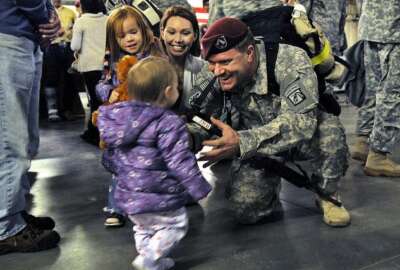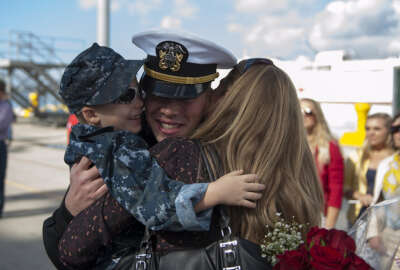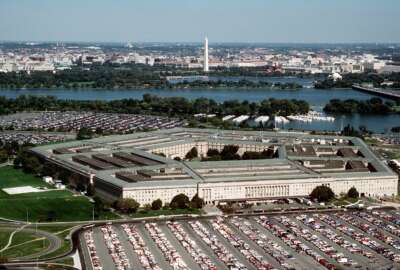
Marine Corps Unit, Personal and Family Readiness Program takes another hit, will cut jobs
After a second wave of cuts to the Marine Corps' Unit, Personal and Family Readiness Program, only about one third of the UPFRP offices will remain.
The Marine Corps’ Unit, Personal and Family Readiness Program is taking its second hit in two years.
The service announced the program will be going through a “reset” starting June 24 that will be finalized by the end of September.
The reset will remove Unit, Personal and Family Readiness Program (UPFRP) offices at the battalion level and push them up to the regiment level. That means there will only be about one third of the UPFRP offices left.
The change is the second reset the office has gone through since 2017. Last year, the office went through a funding reset which implemented a Corps-wide hiring freeze on family readiness officers.
UPFRP took a 25 percent cut in February 2017 and another in 2018 for a total 50 percent reduction in funding.
Employees who work in UPFRP offices will find out their fate with the new reset by June 24. It is currently unknown how big the downsize will be. The Marine Corps instruction states the service will try to keep deployment coordinators – who help personnel and families cope with the challenges of deployment – available until the end of the duration of the deployment.
Marine Corps Headquarters Human Resources Office will release UPFRP business rules on the reset.
Brig. Gen. K.W. Stein said in the instruction that the reset will “enable commanders to focus on the basics of family readiness, while enhancing the role of small unit leadership.”
Family readiness officers, the backbone of the office, will now be broken into three different positions:
- Deployment readiness coordinators
- Recruiting readiness coordinators
- Reserve readiness coordinators
“Recruiting readiness coordinators will focus on the unique challenges associated with independent duty and the recruiting mission. Recruiting RCs will be assigned to each of the Marine Corps Districts in support of Commanders, Marines, attached Sailors, and their Families, including those on installations and in remote locations,” Stein’s instruction stated.
Reserve readiness coordinators will focus on the challenges associated with independent duty in remote locations and provide support to families.
“Readiness and resource support will be provided in a regional model by Reserve RCs to all units within their appointed region, to include contact information on TRICARE, the Exceptional Family Member Program, School Liaison Program, Psychological Health Outreach Program, and the Joint Family Support Assistance Program,” the instruction stated.
UPFRP started in 2005 and provides support for Marines, spouses, family members and other contacts. It provides assistance to address issues with the potential to impact the Marines, families, and the unit.
It also “supports a multitude of training opportunities to assist Marines and their family members with deployments, separations, and life skills. From pre-deployment briefs, to interpersonal communication, to transition assistance, each is designed to empower the participants with skill development and independence” and “provides opportunities for volunteer growth and development which creates stronger unit cohesion. UPFRP volunteers assist with mentoring others spouses/family members, identifying challenges to be addressed by the Command, and assisting with unit events,” according to the program’s website.
UPFRP also sponsors events so military families can create bonds in their community.
The move comes as multiple reports and congressional testimony came out recently on the importance of family readiness for service members.
Copyright © 2025 Federal News Network. All rights reserved. This website is not intended for users located within the European Economic Area.
Scott Maucione is a defense reporter for Federal News Network and reports on human capital, workforce and the Defense Department at-large.
Follow @smaucioneWFED






